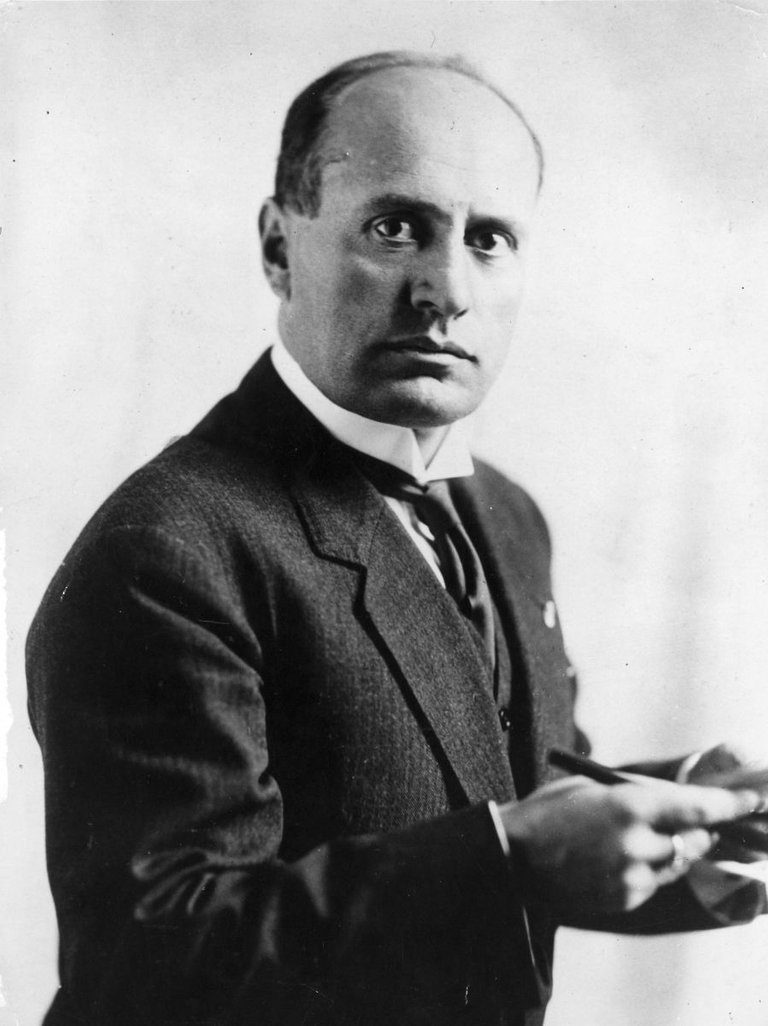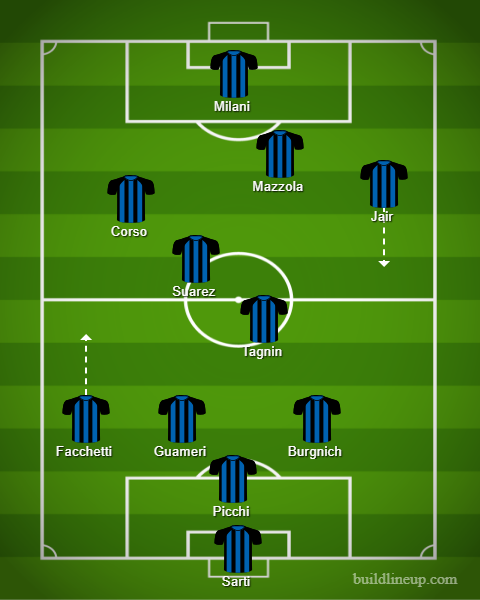Hey, everyone. This post is part of a series I intend to do covering big pictures in football. A series of long, researched reports. Let me know if you like it and would like to see more of this.
What makes a country good at football? Is it being a rich country? Germany, France, England, all rich countries and all won the world cup. But then again so have Brazil, a poor country that hasn't only won the world cup but they actually won it the most. Switzerland is a rich nation, and they get knocked out of the world before they could take a breath.
Does temperature play a role? For example, countries that are extremely cold and where people don't have the ability to play in the street tend to lose, Canada, Finland, and Norway are prime examples. But then again, England is also cold but happens to be where the most competitive football league, the birth of professional football and they have won the world cup before.
Does democracy play a role? France as mentioned have won the World Cup two years ago, Germany in 2014, Spain in 2010, but also Argentina won it under a dictatorship in 1978. Italy won it under a dictatorship TWICE as well. Does Christianity? Italy, where the Vatican is won it 4 times, but also the Godless Soviet Union had a very good football team.
Is It Really That Deep of a Question?
You might rightfully think that I am exaggerating with the way I am looking at this, football is the simple game after all, right? Well, my argument is that football or soccer -A word I am using once only to justify putting the tagline- is in fact a social game, it does in fact represent society and the conditions under which it lives.
Football expresses the way people live their daily life as it is not a sport that requires many tools, all you need is a football, and everything else can be replaced, therefore everyone has access. Simply put, football is affected by geography, politics, and even economics.
Is Football Affected By Geography?
According to David Winner, yes. In his book Brilliant Orange: The Neurotic Genius of Dutch Football, the book in which he talks about the Dutch's revolution style of football, which is commonly referred to as "Total Football"
In the drawing above you see how the strategy for it works. Simply put, the idea is all about space and how to control it, the field is the space and you use everything at your disposal to control it, each player has space and an assignment that ensures that space is controlled.
According to Winner, the need to control spaces stems from the fact that the Netherlands is made of peninsulas. You might be thinking that it is not if you are familiar with the geography of the country, but you should remember it has a lot of shores.
The high number of shores brought in the risk of drowning thus leading some people to obsess over how to divide the space and benefit from it. That obsession, unconsciously according to the author, was transferred into football thus creating what we now know as Total Football.
Not only that
In the old days, Brazil was heavily crowded and heavily poor. Such a place of congestion and poverty led to a feeling of self-hood as each person wanted to escape. No place to care about others, each person wanted to make it, and in order for you to make it, you had to learn the tricks in the street and how to hustle.
Some analysis sees that such self-hood that exists in the Brazilian society and the need for trickery is the same one applied in Brazilian football that depends heavily on being a trickster and your ability to practically dance your way through your opponents. Many examples to cite, but Pele, Ronaldinho, and Neymar are great examples.
Brazilians are solo players, depend more on the individuals rather than the team. At least, historically speaking.
How Do Economics Play Part?
Here we go to England, in 1968, a book came out by the title of Skin and Chance by the English writer Charles Reep. The book is considered the birthplace of the style with which England plays. Charles Reep was an accountant, he loved numbers and statistics. He had analyzed around 2200 football matches in the period of 15 years.
The writer had noticed a pattern in English, the pattern was what football fans today know as "Long Balls". The idea behind the Long Balls style was not porn-related, but in fact that each team had three or four passes they can play before they lose possession of the ball.
The solution was to play long balls until you reach the final third of the field where defenders and attackers would fight it out among themselves.
So the idea is that the attackers would have more chance to break through and threaten the goal, maybe score, the more they have the ball in the final third instead of passing the ball around and risk losing it.
Thus English teams defeated their low abilities to pass, remember that part as we will return to it later.
This method was all about results, it didn't depend on creativity, solo efforts, or abilities. That style matched England's mentality as a country at the time, an industrial country that cares about productivity.
English teams attained the same mentality, it is all about productivity, creativity is not a priority. They looked at games from one perspective, results.
Unconsciously, the pattern of long balls plays was created, one that was simply boring according to many, as it only cared about scoring goals above all else. Italy also played boring football, but for an entirely different reason.
Politics and Its Effect on Football
Before the second world war, Italy was ruled by Benito Mussolini under fascism

Unlike Nazism, Italian fascism was different, the entire idea behind Nazism was making the people operate as one entity that believes in the superiority of the Aryan race. Italian was mediocre in compression when it comes to oppression, their method of controlling people was built on fear. People would walk on eggshells so they wouldn't get hurt and the national football team wasn't any different.
Mussolini was obsessed with the World Cup personally, in 1934, Italy hosted the World Cup and Mussolini did everything he can in order to win it, literally everything. There was a conviction at the time that Italians don't know how to play football, unlike the Argentinians at the time.
Italy established a law called "Oriundo", by that law Italia forcefully nationalized Argentinians in the country, giving them one of two choices
- A) Joining the Italian army
or - B) If they are good players, it allowed them to join the national team.
Mussolini was willing to do anything and everything to have Italy win the World Cup. He bribed the referee in the semi-final against Austria, other stories suggest he threatened him. Either way, the ref played a huge role in Italy winning the World Cup, so much so that he assisted the winning goal with his head before shoving the Austrian goalkeeper out of the way, as comical as that may sound.
In the final, the same ref was picked and Italy won as well.
In 1938
Italy reached the final to face Hungary, in his book El fútbol a sol y Sombra (Soccer in Sun and Shadow) Eduardo Galeano says that the Italian players received letters before the final match.
The letter said "Either victory or death" prompting the Italian players to go beg their Hungarian counterparts to let them win, so much so that the Hungarian goalkeeper did in fact leave the goal open for them.
After the match the goalkeeper said "Yes, we lost the match but we saved the lives of the Italians.
The "Victory or death" letter is key for us to understand football in Italy at the time, it wasn't a metaphor. When defeat means death, there can't be a place for loss. Here we learn the word "Catenaccio ", a term used to describe a defensive method based on defending with two lines with a new defender's position called "Libero" or sweeper.

Basically serving as a method to fish the attackers with the two nets, one catching the attackers and another to catch whoever breaks through. The aforementioned description is coined by Giuseppe Viani, the Godfather of the method.
The Catenaccio was popularized post World War 2 but it is suggested that fear was the reason for the Italians to follow such a method, even after the death of Mussolini, the method lacks any sense of adventure. Basically with this method, you treat yourself as the weaker of the two teams.
Even though the style of football existed for the assumed weaker to fight for a result, but within few years even the strongest clubs, such as Inter Milan, started playing with it. It was said that the perfect match during that time period was one that ended in 0-0.
Politics, and the Aftermath of Defeat
Finally, we go to Spain, or more specifically Catalonia, and even more precisely FC Barcelona. In the thirties, there was a military coup by General Franco that divided the nation into two sides, a side that is with the general and another with the resistance. Catalonia was on the side of the resistance and Barcelona was the center in which they all gathered.
The resistance wasn't all locals, but in fact included many outsiders as well including the English writer George Orwell who wrote a book about that period titled "Homage to Catalonia".
To make a long story short, the General won the conflict, and Catalonia was punished severely for its role in it. After the conflict was over, for example, there were three straight days in which airplane fighters kept bombing the cities in Catalonia. Thousands died.
FC Barcelona's stadium itself has been destroyed thanks to the airstrike, their trophies were buried under the remains.
By the end of the conflict, the General's forces broke into Catalonia and executed over 25,000 people. Not only that, Josep Sunyol i Garriga, a Catalonia lawyer, and politician, who was the president of FC Barcelona and elected member of the Parliament, was informally arrested by Francoists -Franco's militia- and executed to death by gunfire in public.
It didn't stop there, there were also laws criminalizing the use of the Catalan language, many were imprisoned thanks to that. Raising the yellow and red Catalan flag became a criminal offense. Franco hated everything not Spanish and attempted to efface any of the resisting provinces such as Catalonia and the Basque.
All of that led to the Catalan community leaving the war with a bunch of features that we can relate to their style of football.
Fear of defeat leads you to act reserve as we saw in Italy, but what if the feared defeat had already occurred?
Losing everything frees one to take more risks. The idea of risk was implanted in Catalonia and subsequently its main football club Barcelona. In the time period between 1960 to 1973 the club was in its worst form and haven't won a lot of major titles, you would expect during such time for Barcelona would act accordingly and be more reserved.
What happened was the other way around.
Barcelona signed dutch coach Rinus Michels in 1971. Michels is credited as the inventor of the previously mentioned Total Football style and thus he played offensively depending on the offside trap as defensive style, the riskiest style of all as when a strike isn't caught by the offside trap it leads to a goal almost definitely unless Timo Werner is the striker. Barcelona supporters didn't mind the risky style.
Defeat left Barcelona waiting for the messiah
That messiah came in the form of Johan Cruyff, who led Barcelona to defeat Real Madridin a 5-0 thrashing in the Snatiago Bernabeu, Real Madrid's home stadium in 1974. The journalists there said that Cruyff defeated Madrid for Catalonia, succeeding where politicians failed in just 90 minutes. Cruyff had joined Barcelona for his faith in the Catalan cause
In the 1980s Cruyff became head coach for Barcelona to add to his historical role in the club. He started creating a new unique identity for the club, an identity the club wanted to be seen as different from all that is Spanish.
The old struggle carried through as Catalonia never considered itself Spanish since. That was the reason we have now what is called the "Tiki-taka"

The tiki-taka is based on a simple principle "We want the ball" because when you have the ball you don't need to be reserved and stay in the back unlike the "Catenaccio", it also depended on short passes and movement to get to the opposition goal unlike the statistically driven style of the "Long Balls" adopted by England.
The tiki-taka also depended on chemistry and harmony between players who needed to work as one to achieve their goals, unlike Brazil's self-hood based style.
Cruyff wanted the identity to be more thoroughbred thus depending on "La Masia", the football academy in Barcelona making the young players coming from it a priority in order to serve the style with their abilities to pass the ball quickly and accurately.
One of the first graduates of Cruyff's system was Pep Guardiola who later added to the style with positional play winning whooping 30 trophies including historical sextuples depending mainly on La Masia graduates.
FC Barcelona's academy presence was felt in the 2010 World Cup as Spain won the tournament with 8 graduates from La Masia, 7 of whom played in the final, 6 starting, and 2 claiming the winning and only goal of the game spots in assisting and scoring.
In Summary
What I am saying here, proves in one way or another what I said in the beginning. Which is that Football isn't isolated from its surroundings. We can see football as a sort of transfiguration of society. I am not saying that oppression will lead to a certain style of football, that each country made of islands will play such a style of play, or that any industrial country will apply their mindset into football.
What I am saying is that football could in fact be a reflection to the circumstances under which a society lives. A transfiguration to its history and politics.
During the World Cup in 1976 in Argentina, journalists asked the people "What do you think about the effect of political events on football?", many people didn't understand the question as they saw politics and football to be the same thing, that is according Simon Kuper, highlighting how football is merely a representation to one's country and society.
Sources:


A great read. It is said that were all products of our environment, right? The exact same can be said about a country's football culture and style of play
Yeah, I had read many football/sports books and made the connection a long while back. But as you may see, it is a big long, so wasn't sure whether it would be a good idea to post it.
I think they may be good in a series of posts spread out over several editions 🤙🏾
I will look into the best way to do them. Thanks, I will actually keep that in mind.
Very interesting observation there! I like the bit on Total Football especially.
Yeah, the analysis in the book was more detailed, but it would have made the post twice as long. Thanks for your comment.
Amazing detailed output....must say you have done a thorough research on the topic....but in cricket loving nation football does hold some place but now like the way it was seen in EU
Thanks, yeah it was really fun researching the topic. It is really long admittedly but the subject is really worth it in my opinion. Thanks for reading.
Hungary was a great football nation in the fifties, there was a reason for that and that was the so called "Grund"
The "Grunds" where open spaces between houses due to the aftermath of WWII.
There was a lot of houses being torn down and these open spaces became a playground for all those kids playing football and getting really good at it.
There was a great generation of players emerging from these grunds in the 60s and 70s these open spaces gave grounds for new buildings and football could only be played on football fields. That was the death of the hungarian football and it has not recovered ever since..
Thanks for sharing on LISTNERDS
Discord Server.This post has been manually curated by @steemflow from Indiaunited community. Join us on our
Do you know that you can earn a passive income by delegating to @indiaunited. We share 100 % of the curation rewards with the delegators.
Here are some handy links for delegations: 100HP, 250HP, 500HP, 1000HP.
Read our latest announcement post to get more information.
Please contribute to the community by upvoting this comment and posts made by @indiaunited.
Nice post. Our country is trying to change from long ball to a passing game. But there's a reason why we played long ball. We just don't have the quality plus by your post around the English style. Ireland is not far from them so I think we had adapted their style
Oh my god, I didn't know this before 😵
Thanks for this great article !CTP !PIZZA
PIZZA Holders sent $PIZZA tips in this post's comments:
(3/10) @casimirio tipped @amirtheawesome1 (x1)
Join us in Discord!
I am guessing that you did a lot of research to put that post together. Great job. Thanks for sharing.